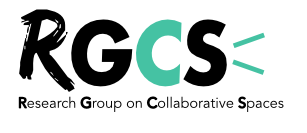NB : cet article reprend l'annexe de la dernière note de recherche RGCS. Les notes de bas de page ne sont pas reproduites dans cette version.
Michel Serres (2018 : p 10) : « Nous croyons à la dualité de l’âme et du corps. Les Egyptiens, eux, pensaient qu’il y avait trois choses : l’âme, le corps, le Ka, le double, une sorte de fantôme qui vous accompagne partout. Quand je vois les gens dans la rue, fascinés par leur portable, j’ai l’impression qu’ils sont avec leur Ka, leur double ! Les Egyptiens sont revenus ! Quand nous perdons notre portable, la panique nous prend… Nous avons le sentiment de perdre notre identité ! »
Le numérique est aujourd’hui omniprésent dans nos vies, en particulier avec un objet : le smartphone. En revenant sur la mythologie égyptienne, Michel Serres le compare au « Ka », ce double fantomatique qui


